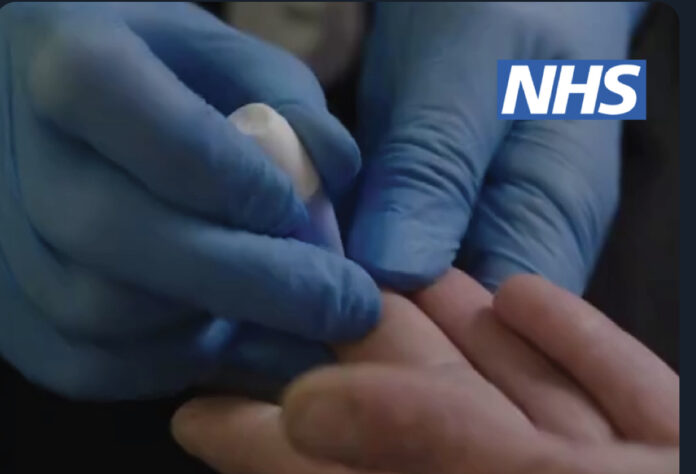New patients registering at GP practices are to be asked if they had a blood transfusion before 1996, in a drive to find undiagnosed patients affected by the infected blood scandal.
Each year, around 400,000 people born before 1996 – around half of new sign-ups online – will now be asked if they received a historic blood transfusion, with those who did then being offered a test for hepatitis C.
Patients will be able to order discreet, self-testing hepatitis C kits to complete at home, involving an easy finger prick blood sample which is then posted to a lab for analysis – or they can also access testing at GP surgeries, sexual health clinics and other services.
Hepatitis C is a virus that can infect the liver and if left untreated, can sometimes cause serious and potentially life-threatening liver damage over many years.
It often does not have any noticeable symptoms until the liver has already been significantly damaged, meaning many people have the infection without realising it.
Once diagnosed, hepatitis C can be treated successfully by taking direct-acting antivirals for several weeks, curing more than 9 out of 10 patients with hepatitis C.
The new questions will be first introduced in the online GP registration service from next month (16 June 2025) and follows a recommendation by Sir Brian Langstaff in the Infected Blood Inquiry report, published in May 2024.
NHS England has issued new guidance to GPs on introducing the questions, capturing responses and supporting patients where a blood transfusion and infection risk is indicated.
Only newly registered patients born on or before 31 December 1995 will be asked if they have had a blood transfusion.
Professor Sir Stephen Powis, NHS National Medical Director, said: “The failures of the contaminated blood scandal have had a horrifying impact for patients and their families for decades, and I would like to reiterate our deepest apologies for the role the health service played in the suffering and loss for so many.
“The NHS is dedicated to implementing the inquiry’s recommendations and this simple change to the GP registration process for patients is a vital step forward in ensuring that nobody affected by contaminated blood is living undiagnosed and unsupported.
“By routinely checking their risk when anyone signs up to a new GP and offering fast hepatitis C tests where necessary, we will ensure any undiagnosed cases can be found and treated as quickly as possible, while enabling thousands more to receive the reassurance of a negative test”.







